

Ressources. TIC y Bilingüismo/ Bilingualism and ICT: Primaria. Educational games Childtopia. Barnes and Noble Read Alouds. Books. Read The Biggest and Brightest Light For Ages: 4-7 Read now More info Wishes Read now More info Popcorn Read now More info Fix It, Fox Read now More info My Twin!
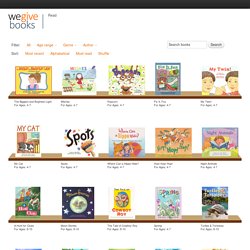
Read now More info My Cat Read now More info Spots Read now More info Where Can a Hippo Hide? Pronunciation. Printables. Cursos gratis de inglés, francés, alemán, portugués e italiano. Los doce idiomas más importantes del planeta - Aprendemas.com. Hacemos un repaso por las doce lenguas más importantes, sus orígenes, su número de hablantes y su dificultad.
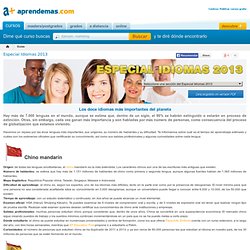
Te informamos sobre cuál es el tiempo de aprendizaje estimado y cuáles son los exámenes oficiales que certificarán su conocimiento, así como sus salidas profesionales y algunas curiosidades sobre cada lengua. Chino mandarín Origen: de todas las lenguas sinotibetanas, el chino mandarín es la más extendida. Los caracteres chinos son una de las escrituras más antiguas que existen. Número de hablantes: se estima que hay más de 1.151 millones de hablantes de chino como primera o segunda lengua, aunque algunas fuentes hablan de 1.365 millones de hablantes.
Español Origen: el español es una lengua romance del grupo ibérico. Inglés Origen: el inglés se deriva de la rama germánica de las lenguas indoeuropeas. Young Learners. Free K-12 Educational Materials for Teachers & Students. MES English free printable flashcards, matching worksheets, bingo cards, games, activities, handouts and more. There are 100+ sets of that I used to design curriculums for children ages 3-9 and 6-10.
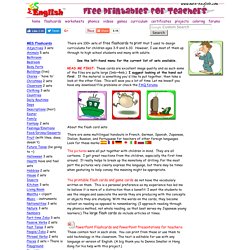
However, I use most of them up through to high school students and many with adults. See the left-hand menu for the current list of sets available. READ ME FIRST: These cards are excellent image quality and as such some of the files are quite large (1mb~4mb.) I suggest looking at the hand out first. If the material is something you'd like to put together, then take a look at the other files. About the flash card sets: There are some multilingual handouts in French, German, Spanish, Japanese, Italian, Russian, and Portuguese for teachers of other foreign languages.
The pictures were all put together with children in mind. The printable flash cards and game cards do not have the vocabulary written on them. Large flash cards do include articles at times. PowerPoint Flashcards and PowerPoint Presentations for teachers : These contain text in each slide. The power of bingo: I use the. Reading Tip Sheets for Parents. How young children learn English as another language.
By Opal Dunn, educational consultant and author Young children are natural language acquirers; they are self-motivated to pick up language without conscious learning, unlike adolescents and adults.
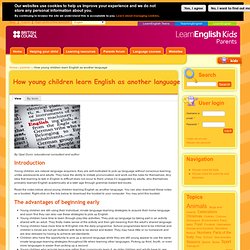
They have the ability to imitate pronunciation and work out the rules for themselves. Any idea that learning to talk in English is difficult does not occur to them unless it’s suggested by adults, who themselves probably learned English academically at a later age through grammar-based text books. Read the notes below about young children learning English as another language. You can also download these notes as a booklet. Young children are still using their individual, innate language-learning strategies to acquire their home language and soon find they can also use these strategies to pick up English. Spoken language comes naturally before reading and writing. During this time parents should not force children to take part in spoken dialogue by making them repeat words. In Class - Learning Styles and Classroom Management. Okay, let's get started.
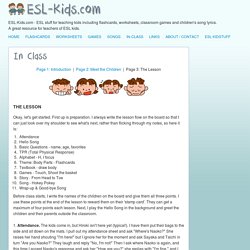
First up is preparation. I always write the lesson flow on the board so that I can just look over my shoulder to see what's next, rather than flicking through my notes, so here it is: Attendance Hello Song Basic Questions - name, age, favorites TPR (Total Physical Response) Alphabet - H, I focus Theme: Body Parts - Flashcards Textbook - draw body Games - Touch, Shoot the basket Story - From Head to Toe Song - Hokey Pokey Wrap-up & Good-bye Song Before class starts, I write the names of the children on the board and give them all three points.
I use these points at the end of the lesson to reward them on their 'stamp card'. 1. 2. 3. Problem: Hiroki is doing 'head-stands' while I ask the questions. Solution: I ask him to sit properly and wave the board eraser over one of his points. 4. 5. Problem: During the song, Naoko is looking bored, Taichi isn't singing and Hiroki is crawling under the table. ESL-Kids - Flashcards, Worksheets, Games and Songs.